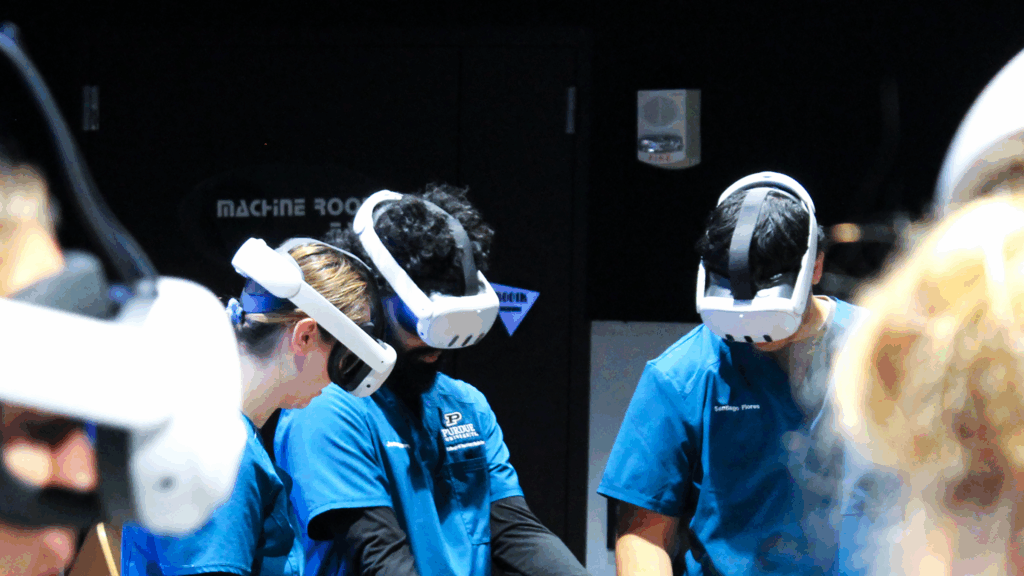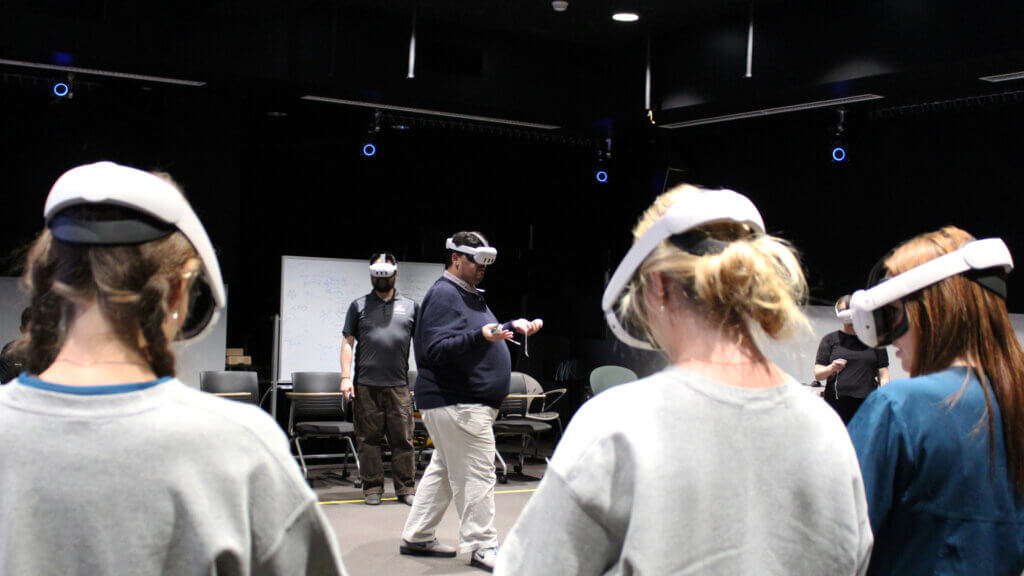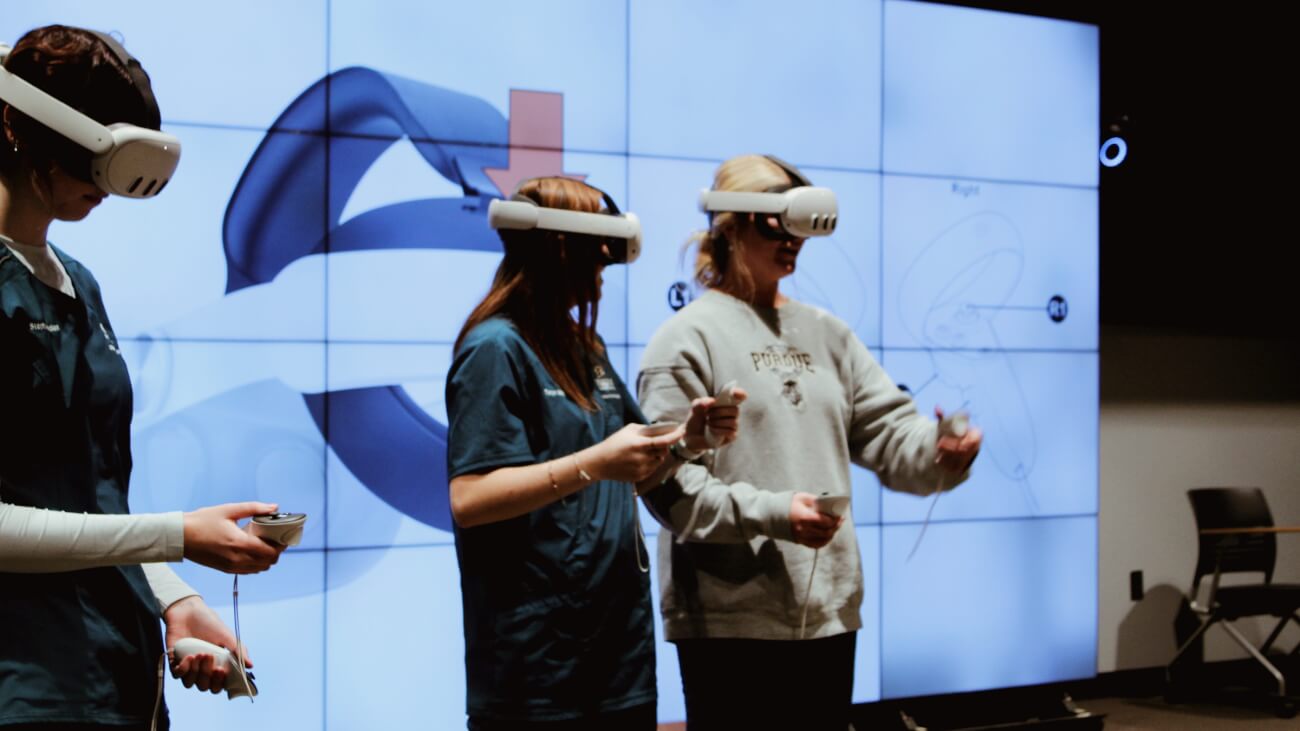First year Doctor of Veterinary Medicine students at the Purdue University College of Veterinary Medicine recently stepped into a new era of learning — an immersive Mixed Reality (MR) experience at Purdue’s Envision Center. This cutting-edge session allowed students to interact with a dynamic, 3D representation of the heart, deepening their understanding of cardiac physiology in ways traditional methods cannot match.

The initiative is part of CollabXR, a program dedicated to creating next generation extended reality experiences for academic use. Purdue Veterinary Medicine’s Basic Medical Sciences Department together with the Envision Center participated in the project, in partnership with the Purdue Innovation Hub. The project exemplifies how technology and education can converge to enhance learning.
Earlier this year, Purdue nursing students piloted the same simulation under the guidance of Dr. Amy Nagle, clinical associate professor in the School of Nursing. That success paved the way for veterinary students to experience this innovative approach, reinforcing Purdue’s commitment to immersive learning across disciplines.

Dr. Dielson da Silva Vieira, clinical assistant professor of basic medical sciences and lead instructor for this exercise, stressed the transformative potential of the experience. “This activity introduces our first-year veterinary students to a new way of learning—one that blends science, creativity, and technology,” Dr. Vieira said. “It’s not just about understanding the cardiac system; it’s about inspiring curiosity and showing that veterinary medicine can be explored through innovative, animal-free tools. Ultimately, it’s an invitation to think differently, learn actively, and have fun using a gamified approach to anatomy and physiology.”
Dr. Susan Mendrysa, PVM associate dean for research and the course instructor of record, sees this resource as an essential component of veterinary education, “The moment I learned about this simulation, I knew we had to make it available to our DVM students,” Dr. Mendrysa said. “It represents an innovative approach to learning that truly enhances understanding. I’m deeply grateful to our veterinary medicine faculty—Drs. Dielson da Silva Vieira, Mi Ran Kim, Kevin Hannon, and Luis Dos Santos—for their collaboration, and to the Envision Center staff for their outstanding support in bringing this experience to life.”
This initiative reflects Purdue’s strategic One Health focus on the interconnectedness of human, animal, plant and environmental health. By sharing immersive learning tools across veterinary and nursing programs, Purdue fosters interdisciplinary collaboration and prepares future professionals to address complex health challenges through integrated, technology-driven education.

